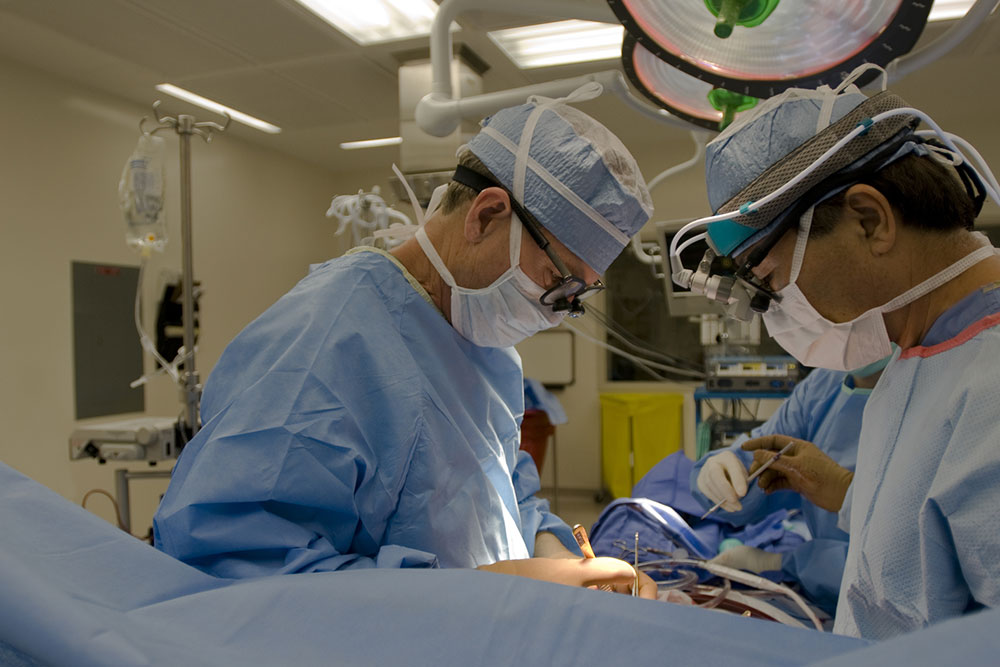Gastric Sleeve Surgery – Procedure, Benefits, and Cost
Gastric sleeve surgery (or sleeve gastrectomy) is a common treatment option for those who want to change their appetite and metabolism to boost overall health. While the procedure is considered safe, it does require special care. Additionally, after the surgery, one might have to wait a few weeks before resuming daily tasks. So, if considering gastric sleeve surgery, understanding certain key details regarding the procedure can help one make an informed decision.
Eligibility requirements
Gastric sleeve surgery can only be performed on those who have a BMI of 40 or above. BMI, or body mass index, is measured by dividing one’s current body mass by the square of their height in meters.

Procedure
Once an individual is considered eligible for the surgery, the procedure will be scheduled. Then, for at least two weeks before the surgery, one will be asked to opt for just liquid foods. For about 12 hours before the treatment, they may be asked to fast, as an empty stomach makes the surgery safer. Then, one will be taken to an operating room to begin the procedure.
- The surgery is usually performed by making small cuts to open the abdominal cavity. This is a laparoscopic procedure, in which a thin tube is inserted to guide the surgical instruments. A laparoscope or video camera also enters the body through the tube to allow the surgeon to view the insides of the stomach on a screen.
- During the procedure, the surgeon tries to remove about 80% of the outer part of the stomach and alters the hormones that regulate hunger. Then, they leave behind a tubular sleeve shaped like a banana. Once this is done, the cuts will be carefully closed.
- The procedure usually takes about an hour to 90 minutes, after which one will be placed under observation for 1-2 days. This allows doctors to check for temporary side effects like pain or nausea.
Intended outcome
The procedure often makes one reduce their food intake, feel full faster, and experience fewer unnecessary cravings. Besides changing food intake, gastric sleeve surgery helps improve conditions like hypertension, insulin resistance, high cholesterol, fatty liver disease, joint pain, and heart problems. The condition has relatively fewer complications than other surgeries and is minimally invasive. This means the recovery is also faster in comparison.
Benefits
Gastric sleeve surgery is considered to be a pretty straightforward procedure. It also has a fast recovery rate (within a day or two) compared to similar procedures. Additionally, it is safer and less invasive than other options. Finally, the surgery does not cause any long-term complications, as unlike other similar procedures, internal organs are not rearranged in the process.
Cost
On average, a gastric sleeve surgery costs about $19,000. The actual cost usually ranges from $17,000 to $26,000 but can go up to $33,541. The factors influencing the overall cost include choice of hospital, aftercare requirements, surgeon experience, and length of hospital stay. Certain insurance plans can help cover part of the expenses, especially when the procedure is medically necessary. It usually happens when a doctor recommends gastric sleeve surgery to minimize the health risk an existing health condition poses.
Post-surgery care
For a few months after the procedure, one will be asked to visit the doctor for regular checkups. These visits help the doctor examine the healing progress and look for any lasting side effects. The follow-ups may also include blood tests to check iron, blood glucose, calcium, and vitamin levels. Additionally, one must make a few lifestyle changes, including modifying their food regimen.
- One will be asked to choose mostly liquid foods for a few weeks, followed by small, lighter meals. They will also be asked to spread out their meals during the day.
- Other changes include avoiding high-calorie foods and liquids during and after meals to avoid feeling too full.
- Another key change is keeping up vitamin and mineral intake to avoid any nutrient deficiencies following the surgery. The doctor will usually share a detailed food plan and schedule and recommend ways to lead a healthy lifestyle to maintain the results of the surgery.
To ensure one has all the information one needs, it is important to choose a reliable healthcare provider. Today, one can easily type in “gastric sleeve surgery doctors near me” on a search engine and find top-rated options in their area. Then, based on hospital and healthcare provider reviews, initial consultation, and insurance options, one can choose the right doctor for them.

